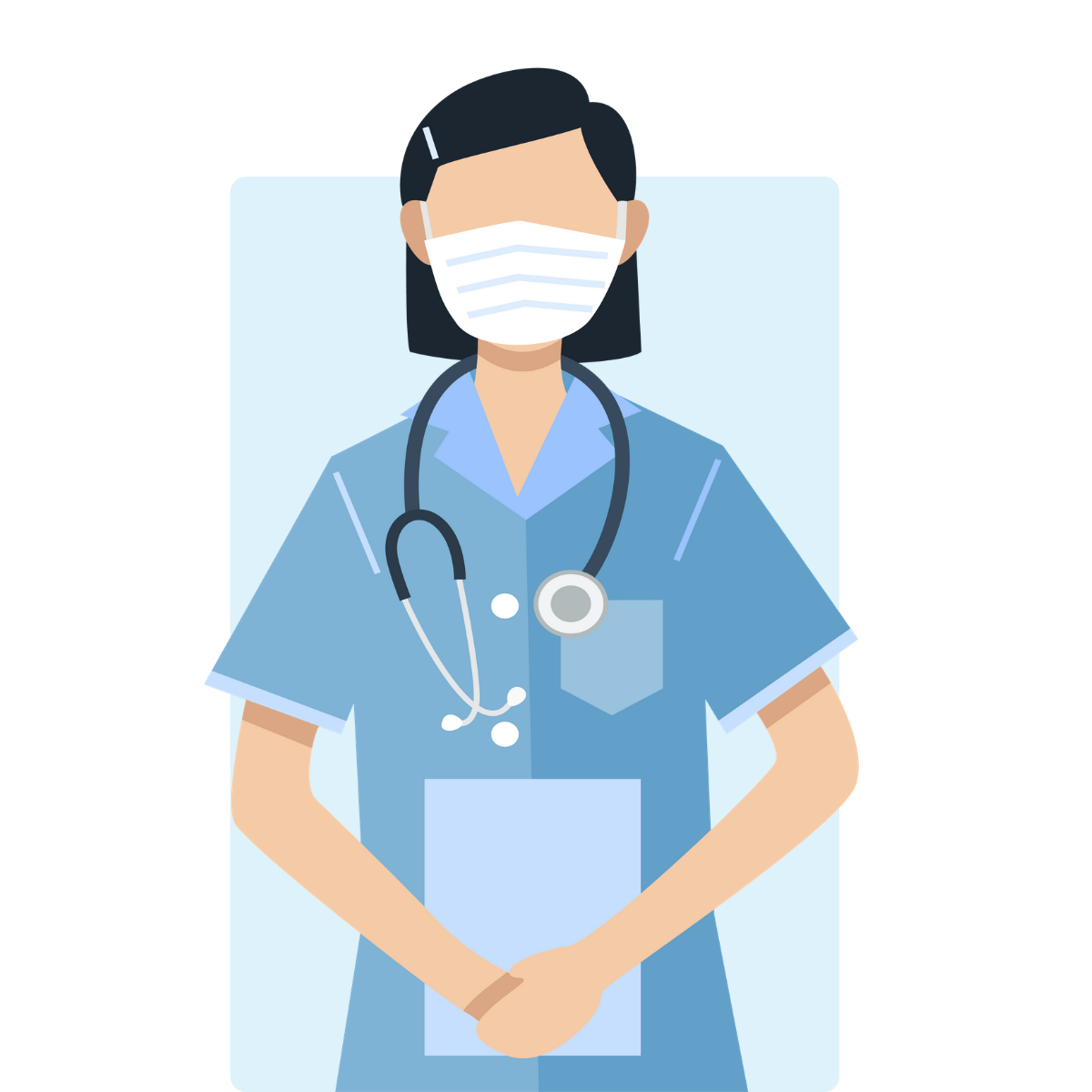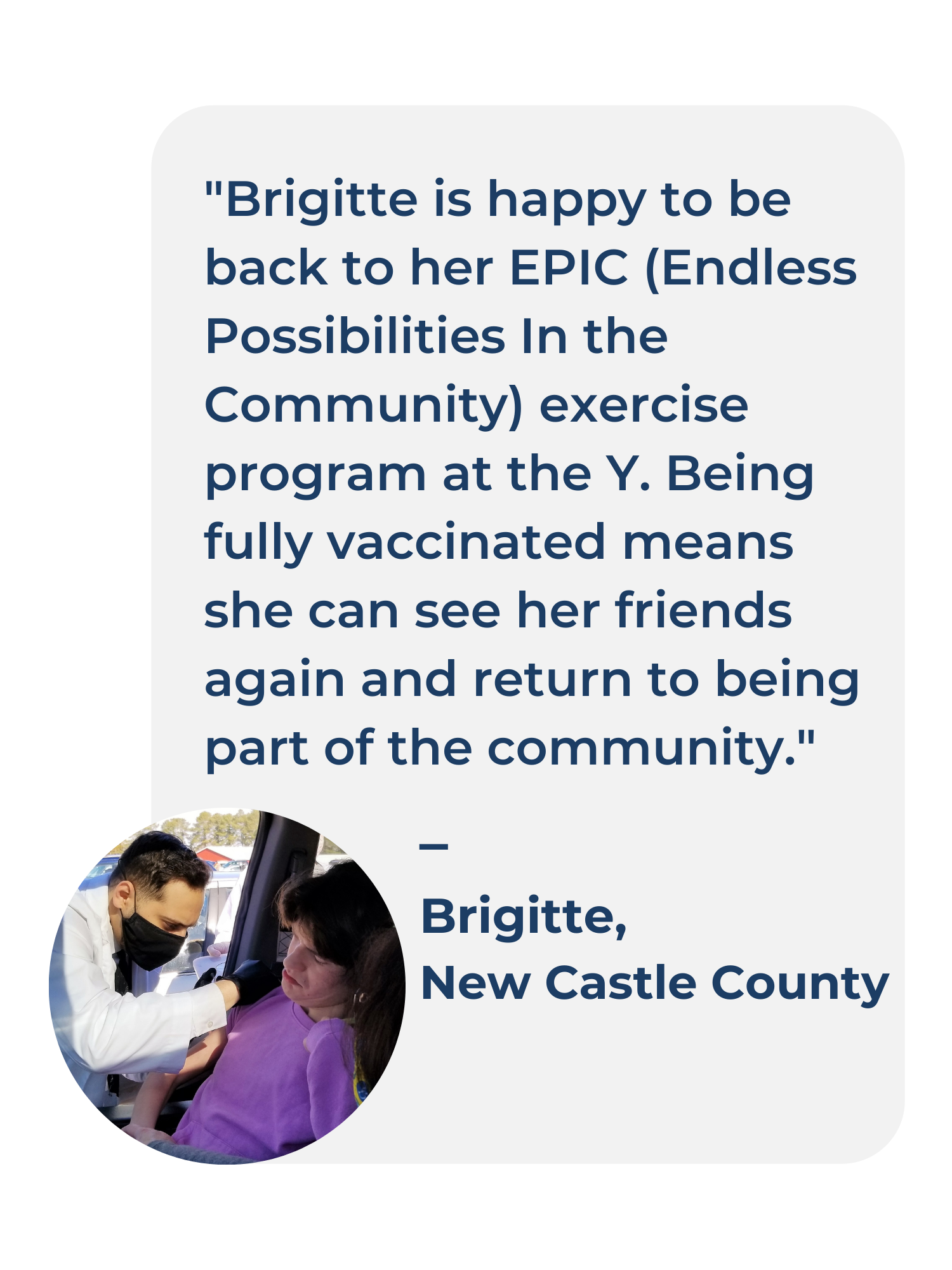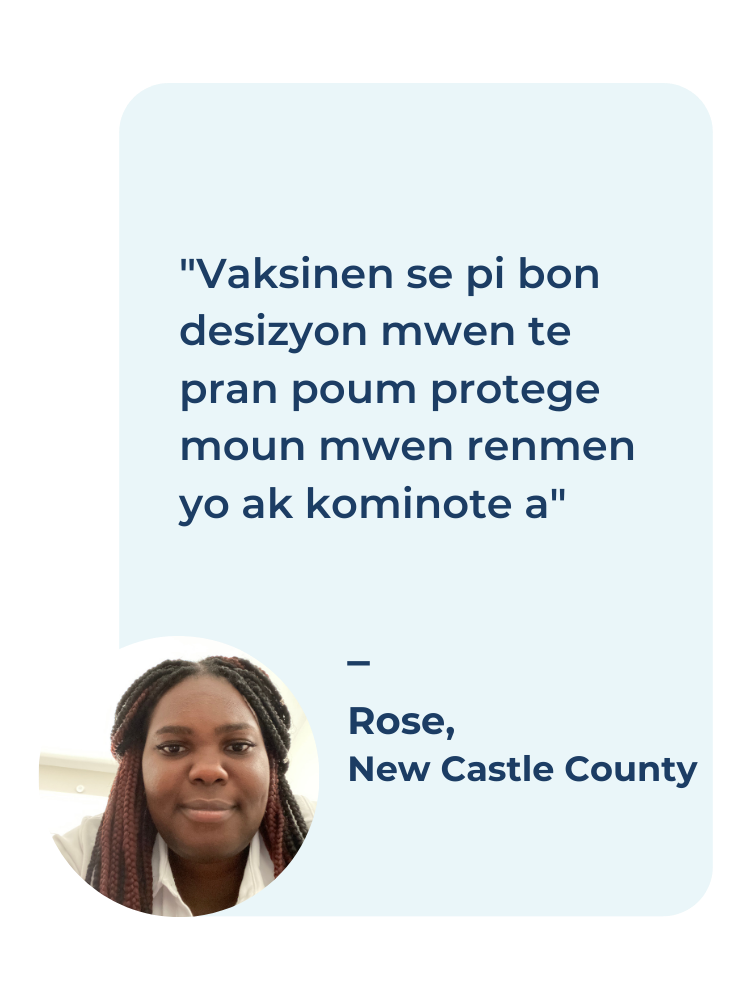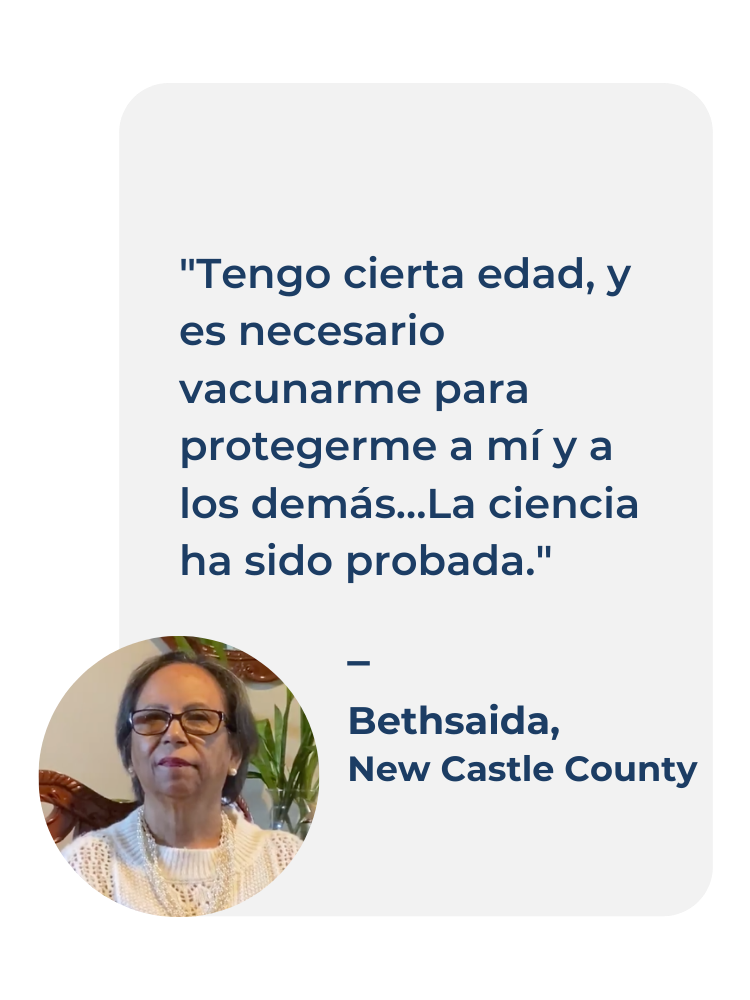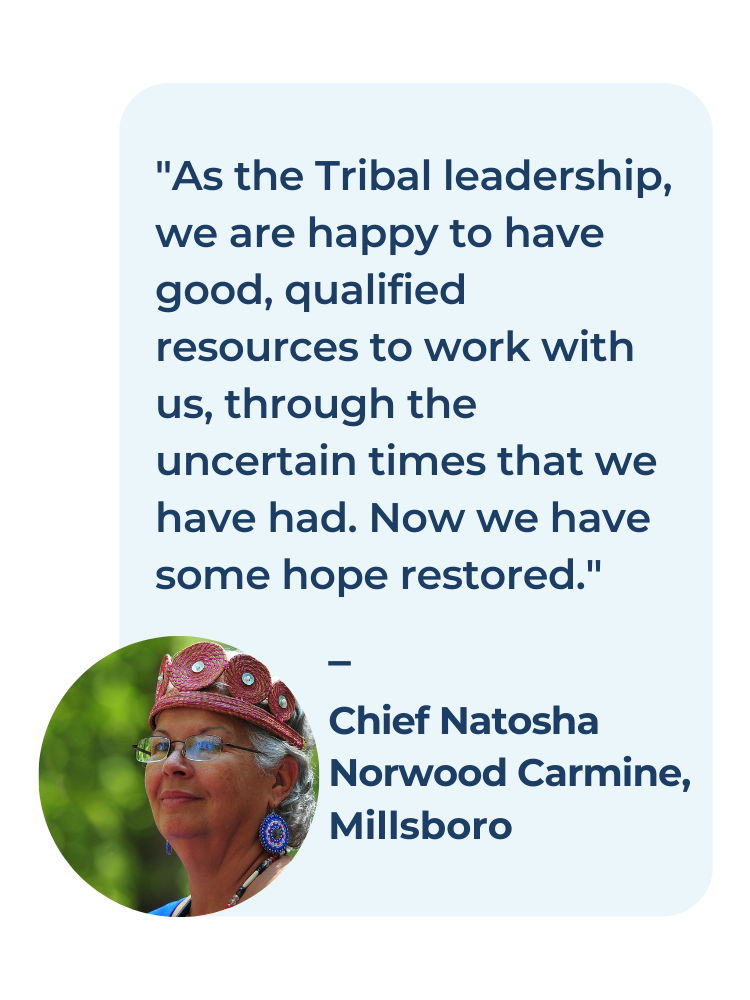What You Should Do After You’re Fully Vaccinated
What can I do after I’ve been fully vaccinated?
We know that with more people getting vaccinated everyone is eager to get back to the people and the moments that they love the most. Based on research, the CDC has indicated that fully vaccinated people can relax some of their mask wearing and social distancing activities under most situations. See the CDC’s full set of recommendations.The CDC’s recommendations do not take the place of restrictions of provisions set by individual businesses that may continue to require the use of face coverings.
DPH recommends unvaccinated individuals, including children ages 2 and older not yet eligible for a COVID-19 vaccine, should still wear masks in public settings and around others who are outside their immediate household.
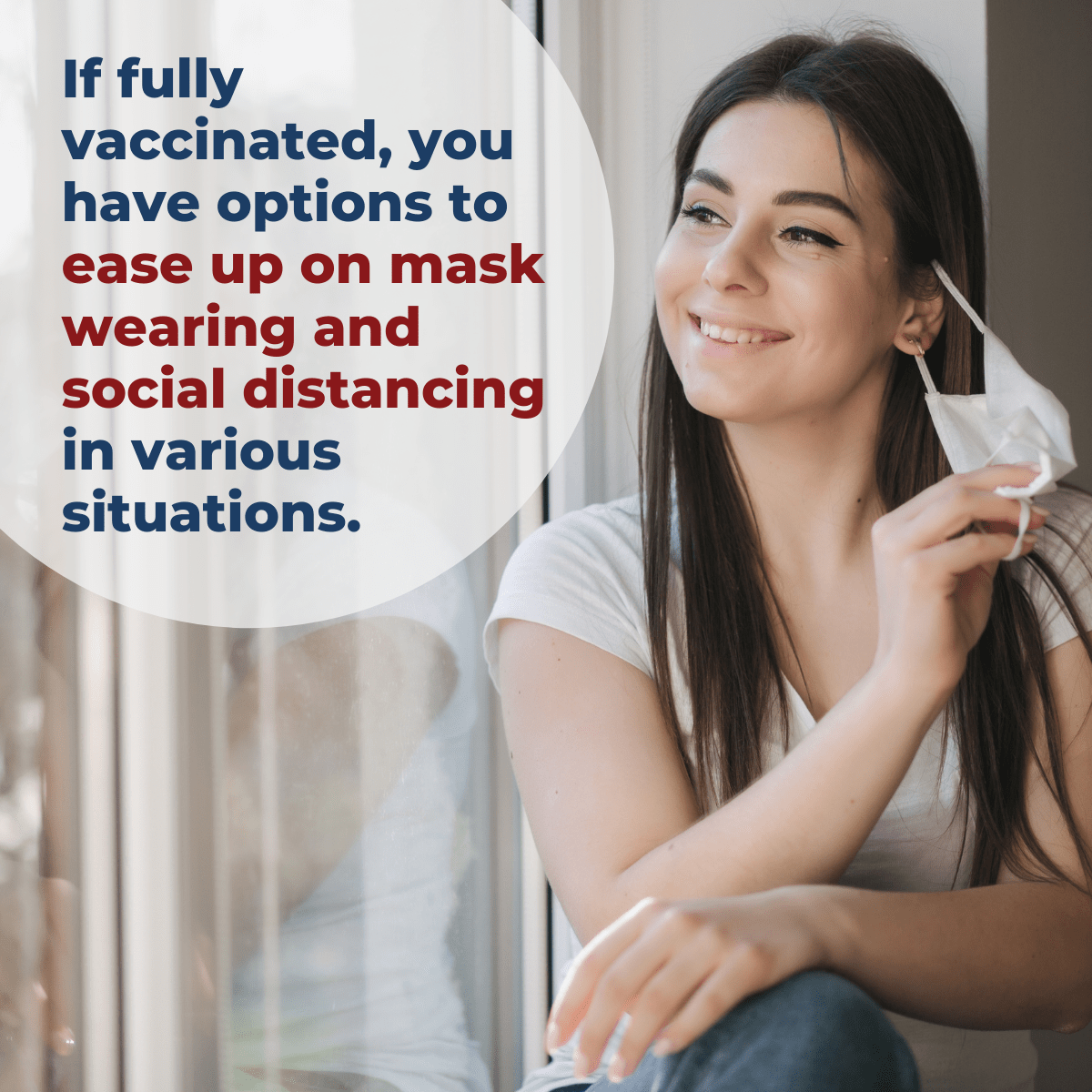
What does fully vaccinated mean?
People are considered fully vaccinated:
2 weeks after their second dose in a 2-dose series (of Pfizer or Moderna vaccines), or 2 weeks after a single-dose vaccine, (Johnson & Johnson’s Janssen vaccine)If it has been less than 2 weeks since your 1-dose shot, or if you still need to get your second dose of a 2-dose vaccine, you are NOT fully protected. Keep wearing face masks, and social distancing in all situations.
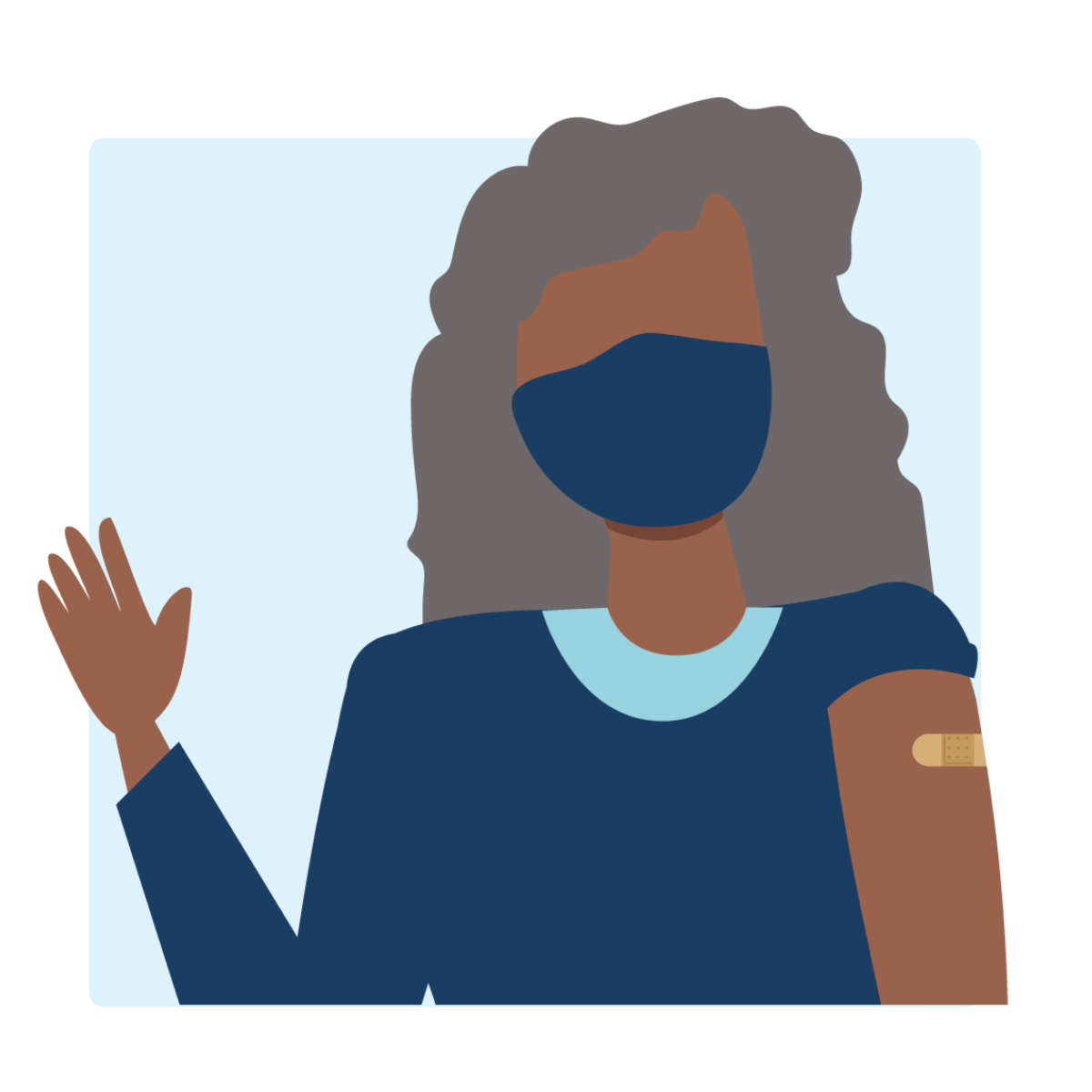
If you’ve been fully vaccinated…
Face Masks
Masks are not required except on public transportation, in long-term care facilities (situational), in State-run buildings, and where required by individual businesses, schools, or health care facilities. The Centers for Disease Control and Prevention (CDC) recommends you wear a face mask in areas of high transmission (Visit CDC COVID-19 data tracker https://covid.cdc.gov/covid-data-tracker/#datatracker-home
Testing, Quarantine, and Isolation
Fully vaccinated persons who develop COVID-19 symptoms should get tested, and isolate at home until your results come back, continuing to do so if your test comes back positive. If you have been identified as a close contact of someone who has COVID-19.- If you come into close contact with someone with COVID-19, you should quarantine if you are in one of the following groups:
- You are ages 18 or older and completed the primary series of recommended vaccine, but have not received a recommended booster shot when eligible.
- You received the single-dose Johnson & Johnson vaccine (completing the primary series) over 2 months ago and have not received a recommended booster shot.
- You are not vaccinated or have not completed a primary vaccine series.
- If you came into close contact with someone with COVID-19 and you are in one of the following groups, you do not need to quarantine.
- You are ages 18 or older and have received all recommended vaccine doses, including boosters and additional primary shots for some immunocompromised people.
- You are ages 5-17 years and completed the primary series of COVID-19 vaccines.
- You had confirmed COVID-19 within the last 90 days (you tested positive using a viral test).
You should wear a well-fitting mask around others for 10 days from the date of your last close contact with someone with COVID-19 (the date of last close contact is considered day 0). Get tested at least 5 days after you last had close contact with someone with COVID-19. If you test positive or develop COVID-19 symptoms, isolate from other people and follow recommendations in the Isolation section below. If you tested positive for COVID-19 with a viral test within the previous 90 days and subsequently recovered and remain without COVID-19 symptoms, you do not need to quarantine or get tested after close contact. You should wear a well-fitting mask around others for 10 days from the date of your last close contact with someone with COVID-19 (the date of last close contact is considered day 0).
Travel Recommendations
If you travel in the United States, you do not need to get tested before or after travel or self-quarantine after travel. If you travel internationally:-
- You do NOT need to get tested before leaving the United States unless your destination requires it. Check with your destination country’s requirements prior to travel.
- You still need to show a negative test result or documentation of recovery from COVID-19 before boarding an international flight to the United States
- You should still get tested 3-5 days after international travel.
- If you tested positive for COVID-19 or were exposed and in quarantine, you cannot return to the U.S. until cleared from isolation or quarantine. Even if you test negative on day 5 of your isolation or quarantine period, you’d have to wait to travel until day 8 and repeat your test on day 7.
- All air passengers, regardless of vaccination status, must show a negative COVID-19 test taken no more than one day before travel to the United States.
- For more information, visit the CDC’s travel page.
Review the CDC’s guidance for Choosing Safer Activities for Fully Vaccinated vs. Unvaccinated People.
DPH Guidance, Quarantine, and Testing Recommendations For Fully Vaccinated Persons (updated document coming based on new CDC guidance)
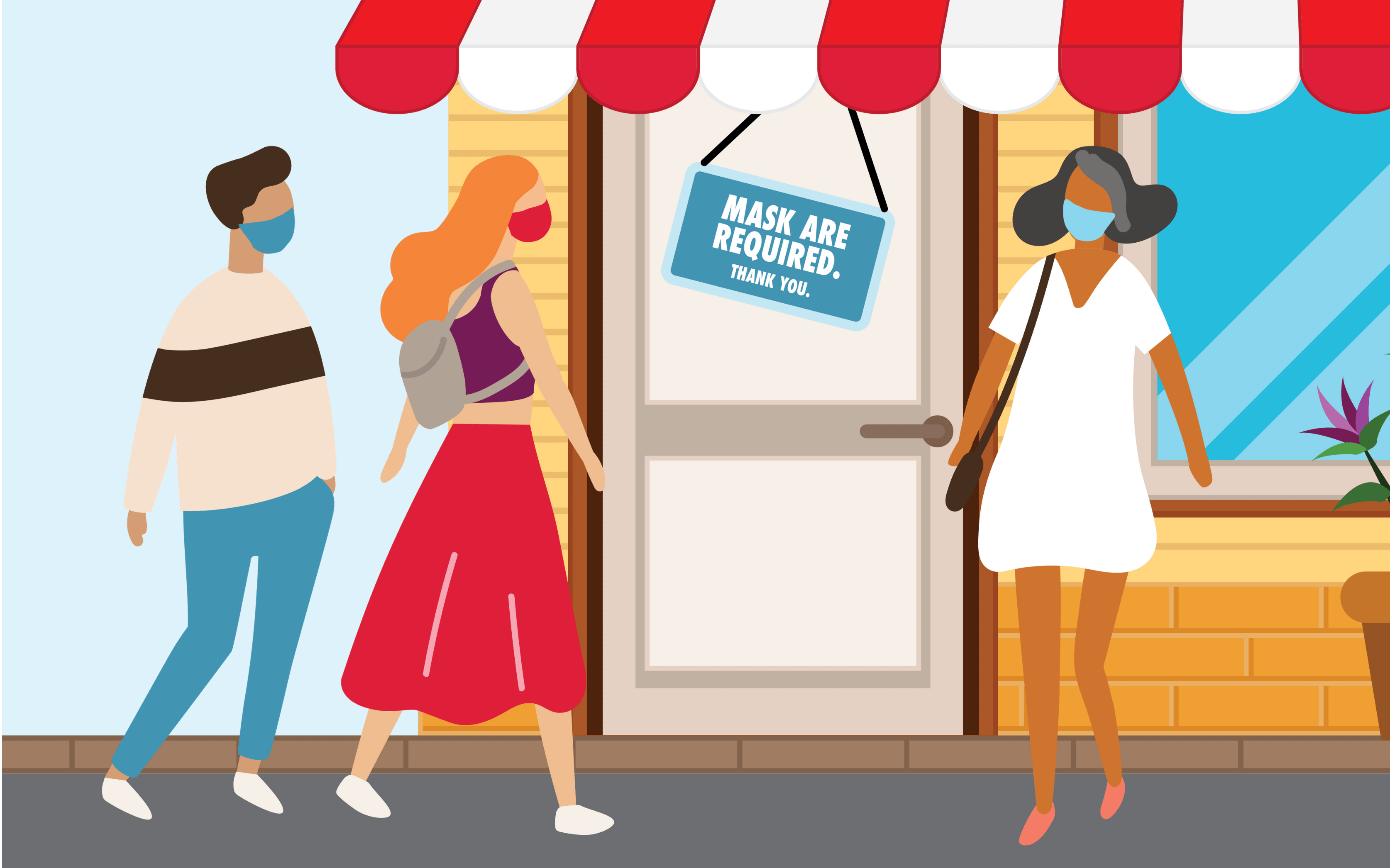
Quick Q&A:
“If I’m fully vaccinated, is there anywhere I still need to wear a mask?
You will need to wear a mask if a particular business, organization, health care provider, or your employer requires it in their building.
Fully vaccinated people should still…
Watch out for symptoms of COVID and get tested if you have them. For a list of testing sites in DE visit de.gov/gettested. If you test positive for COVID-19 whether you have symptoms or not, you should isolate for 5 days from the time of your test or your symptom start date. If you test positive for COVID-19 whether you have symptoms or not, you should isolate for 5 days from the time of your test or your symptom start date and wear a mask for 5 additional days in public settings.
What we know…
COVID-19 vaccines are effective at preventing COVID-19 disease, especially severe illness and death. COVID-19 vaccines are effective against severe disease and death from variants of the virus that causes COVID-19 currently circulating in the United States, including the Delta variant. Infections happen in only a small proportion of people who are fully vaccinated, even with the Delta variant. When these infections occur among vaccinated people, they tend to be mild. If you are fully vaccinated and become infected with the Delta variant, you can spread the virus to others. People with weakened immune systems, including people who take immunosuppressive medications, may not be protected even if fully vaccinated.What we’re still learning…
How long COVID-19 vaccines can protect people.
I got vaccinated because…
Stats on COVID-19
For more data on Delaware COVID-19 cases including demographic breakdowns, go to My Healthy Community
Related Topics: COVID-19 Vaccine, Fully Vaccinated, Vaccinated



